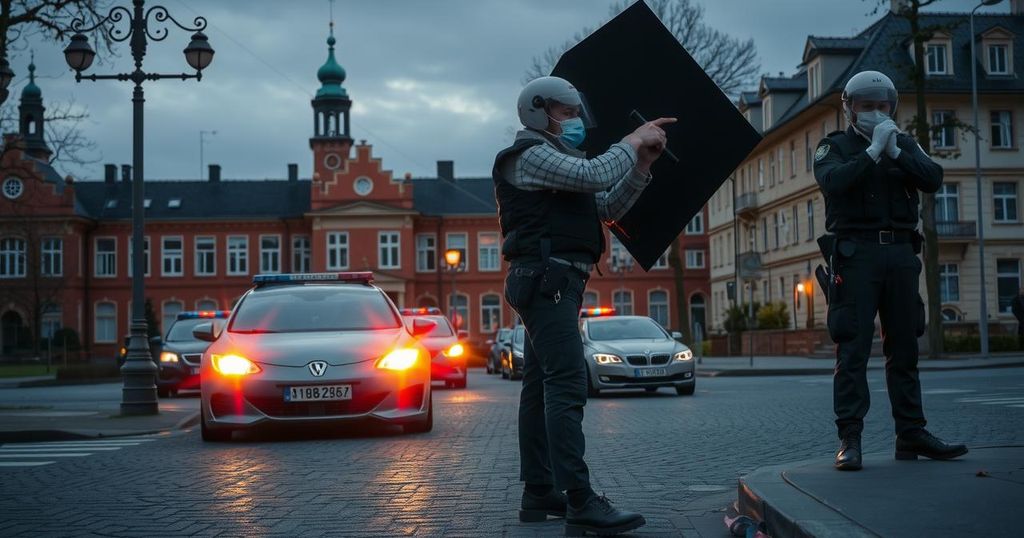The recent attack at the Magdeburg Christmas market has intensified political tensions in Germany, leading to rampant misinformation and exploitation by far-right factions. With federal elections approaching, security and migration will likely dominate the discourse, as the AfD seeks to capitalize on the incident. Criticism of government responses to the attack further complicates the political landscape as parties navigate their positions.
In the aftermath of the tragic ramming attack at the Magdeburg Christmas market, tensions have heightened in German political discourse, particularly as the federal elections approach in February. Almost immediately, misinformation regarding the attack began to circulate, suggesting multiple attackers and misleading ties to refugees. The suspect, Talib A.*, a Saudi national residing in Germany since 2006, has been associated with the far-right Alternative for Germany (AfD) party, which rapidly attempted to leverage the incident for political gain. Prominent figures within the AfD have been vocal on social media, attributing blame to other political parties and advocating for more stringent migration policies.
Political analysts predict a significant focus on security and migration in the upcoming elections, echoing trends in recent state elections. The AfD’s narrative around the incident may intensify existing sentiments against migration, overshadowing discussions on the necessity of skilled workers in Germany. Criticism of the Interior Minister, Nancy Faeser, also surfaced after reports indicated prior warnings about the suspect, raising questions about security measures in the lead-up to the attack. The electoral landscape is complicated by the fact that six other political parties have committed to a fairness accord, contrasting with the inflammatory rhetoric from the AfD and other right-wing factions.
The Magdeburg Christmas market attack, which resulted in at least five fatalities, has significant implications as Germany heads towards federal elections in February. The immediate political fallout includes a surge in misinformation related to the incident, which suggests a premeditated and coordinated attack by refugees. This situation has provided right-wing parties, particularly the AfD, with an opportunity to amplify their anti-immigration stance, potentially influencing public sentiment and altering the political landscape of the upcoming elections. The focus on security as a primary election issue reflects broader trends in European politics where migration is increasingly framed as a security concern, overshadowing discussions about the potential benefits of immigration in addressing labor shortages.
The attack in Magdeburg serves as a critical juncture for German politics, with implications reaching far beyond immediate security concerns. The unfolding narratives are likely to shape the electoral strategies of various parties, particularly the rising influence of the AfD and its anti-immigrant rhetoric. The potential for misinformation to skew public perception underscores the urgency for responsible communication in political discourse, particularly in the context of upcoming federal elections. Moreover, the handling of the situation by authorities will likely be scrutinized, affecting public trust in governmental capacity to ensure safety and security.
Original Source: www.dw.com






